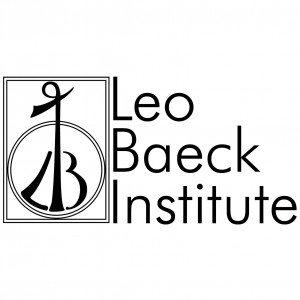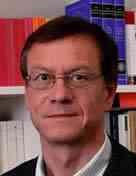
23rd Annual Milton Plesur Graduate History Conference
University at Buffalo, State University of New York
Saturday, April 5, 2014
The University at Buffalo Graduate History Association (GHA) would like to place a call for papers for the twenty-third annual Milton Plesur Graduate History Conference. Co sponsored by the Graduate Student Association, the History Department, and graduate student groups from the Humanities and Social Sciences, the Plesur conference has provided an opportunity for M.A. and Ph.D. students across the United States and Canada to present original research in history and related fields for over two decades. The GHA is proud to continue the tradition of supporting graduate student research in a collegiate forum.
This year we are pleased to welcome Dr. Erin K. Rowe, Assistant Professor at The Johns Hopkins University, who will deliver the keynote address. Dr. Rowe’s address is titled “How Can a Black Man Be a Saint?: Constructing Black Sanctity in Early Modern Global Catholicism,” and investigates the rise and circulation of devotion to sub-Saharan African saints in the early modern Catholic world. We would like to encourage individuals to submit papers that would complement Dr. Rowe’s work, though we will be accepting papers on a wide range of themes and topics including, but not limited to:
- History and Historiography
- Race, Ethnicity, and Identity
- Public Memory and Commemoration
- Migration and Diaspora
- Gender, Sexuality, and the Body
- Science, Medicine, and Technology
- Religion and Society
- Sovereignty and the State
- Popular Culture and Consumerism
- Public History and Education
- Empire and Nation
- Intellectual History
- Work, Class, and Community
- Urban, Rural, and Environmental
Applicants are invited to submit 250-300 word proposals for individual papers, or panels of three papers. Submissions should be accompanied by an updated C.V.
The priority deadline for submissions is January 15, 2014. The final deadline is February 15, 2014.
Please submit your proposal by clicking HERE, or email your proposal and C.V. to Josh Schroeder at jrschroe@buffalo.edu.
********

38th Annual GSA Conference
The German Studies Association (GSA) will hold its Thirty-Eighth Annual Conference in Kansas City, Missouri, September 18-21, 2014.
The Program Committee cordially invites proposals on any aspect of German, Austrian, or Swiss studies, including (but not limited to) history, Germanistik, film, art history, political science, anthropology, musicology, religious studies, sociology, and cultural studies. Proposals for entire sessions and for interdisciplinary presentations are strongly encouraged. Individual paper proposals and offers to serve as session moderators or commentators are also welcome. Applications for seminar topics went out a few weeks ago; that deadline isDecember 15. Applications for participation in seminars will be opened on January 6.
Please see the GSA website for information about the submission process for ‘traditional’ papers, sessions, and roundtables, which opens on January 5, 2014. ALL proposals must be submitted online; paper forms are not used. The deadline for proposals is February 17, 2014.
Please note that presenters must be members of the German Studies Association. Information on membership is available on the GSA website (www.thegsa.org).
In order to avoid complications later, the Program Committee would like to reiterate two extremely important guidelines here (the full list of guidelines is available on the GSA website):
No individual at the GSA Conference may give more than one paper or participate in more than two separate capacities.
It is the responsibility of the submitter of proposed panels to ensure that any AV requests are specific (i.e., requiring both audio and visual) and clearly justified.
For more information, visit the GSA website, where previous conference programs may be found (www.thegsa.org), or contact members of the 2014 Program Committee:
Program Director: Margaret Eleanor Menninger, Texas State University (mm48@txstate.edu)
Eighteenth-century history/culture: Daniel Riches, University of Alabama, Tuscaloosa, (dlriches@ua.edu)
Nineteenth-century history/culture: Anthony J. Steinhoff, Université de Quebec, Montreal, steinhoff.anthony@uqam.ca
Twentieth- and twenty-first-century history: Thomas Kohut, Williams College (Thomas.A.Kohut@williams.edu)
Twentieth- and twenty-first-century history: Heather Perry, University of North Carolina, Charlotte (hrperry@uncc.edu)
Twentieth- and twenty-first-century Germanistik: Sara Hall, University of Illinois, Chicago (sahall@uic.edu)
Twentieth- and twenty-first-century Germanistik: Todd Heidt, Knox College (theidt@knox.edu)
Political Science: Angelika von Wahl, Lafayette College (vonwahla@lafayette.edu)
Interdisciplinary/Diachronic: Drew Bergerson, University of Missouri, Kansas City, (BergersonA@umkc.edu)
Interdisciplinary/Diachronic: Maria Makela, California College of the Arts (mmakela@cca.edu)
Seminars:
Lutz Koepnick (chair), Vanderbilt University (Lutz.Koepnick@vanderbilt.edu)
Elisabeth Herrmann, University of Alberta (herrmann@ualberta.ca)
Emre Sencer, Knox College (esencer@knox.edu)
********
 Hirschfeld-Tagen Conference
Hirschfeld-Tagen Conference
Die Bundesstiftung Magnus Hirschfeld hat 2012 mit den “Hirschfeld-Tagen” eine Veranstaltungsreihe ins Leben gerufen, mit der in den verschiedenen Regionen und Bundesländern Deutschlands an den Namensgeber der Stiftung sowie allgemein an all diejenigen erinnert werden soll, die sich in der Vergangenheit für die Emanzipation von LGBTIQ-Menschen eingesetzt haben und sich auch heute noch in diesem Bereich engagieren.
2014 finden die “Hirschfeld-Tage” in Nordrhein-Westfalen statt. Fester Bestandteil der Veranstaltungsreihe sind die “Hirschfeld-Lectures”, die 2014 von Robert Beachy (Associate Professor, Department of History/Goucher College, Baltimore, MD, USA) und Claudia Breger (Professor of Germanic Studies, Department of Gender Studies/Indiana University, IN, USA) in Köln bestritten werden.
Das Centrum Schwule Geschichte Köln (http://www.csgkoeln.org/) und Prof. Dr. Norbert Finzsch (Universität zu Köln, Historisches Institut/Anglo-Amerikanische Abteilung; http://histinst.phil-fak.uni-koeln.de/382.html) übernehmen im Auftrag und in Kooperation mit der Bundesstiftung Magnus Hirschfeld die Ausrichtung der Hirschfeld-Lectures 2014 in Köln. Als Rahmen für die Vorträge organisieren CSG und Norbert Finzsch eine Konferenz für NachwuchswissenschaftlerInnen aus dem Bereich der Queer und Gender Studies und allen anderen akademischen Disziplinen, die sich mit der Historiographie der LGBTIQ-Emanzipation befassen. Den ReferentInnen soll dabei die Gelegenheit gegeben werden, ihre aktuellen (Abschluss)Arbeiten und Projekte zu präsentieren und zu diskutieren. Eine thematische oder epochale Eingrenzung wird bewusst nicht angestrebt; Ziel ist es vielmehr, im Rahmen der Tagung die aktuelle Bandbreite der Nachwuchsforschungen zum Thema LGBTIQ-Emanzipation möglichst weitgehend zu erfassen.
Willkommen sind Beiträge von ReferentInnen aller akademischen Qualifikationsstufen (BA, MA, Magister, Promovierende…). Darüber hinaus sind auch nichtakademische Initiativen, Geschichtswerkstätten, Vereine und unabhängige ForscherInnen, die sich “vor Ort” mit der LGBTIQ-Geschichte befassen, dazu aufgerufen, Themenvorschläge einzureichen. Wir möchten so zur Vernetzung von Queer und Gender Studies, “Mainstream-Historiographie”, Nachwuchsforschung und nicht-akademischer LGBTIQ-Geschichtsforschung beitragen.
Themenvorschläge (maximal 1 Seite DIN A 4; zusätzlich kurze biographische Angaben) können bis zum 14.2.2014 an folgende Mailadresse gerichtet werden:
queergenderhistoriographie2014@gmail.com
Vorbehaltlich der Bewilligung beantragter Fördermittel wird die Übernahme der Kosten für Anreise, Unterkunft und Verpflegung angestrebt. Eine Publikation der Tagungsbeiträge ist angedacht.









